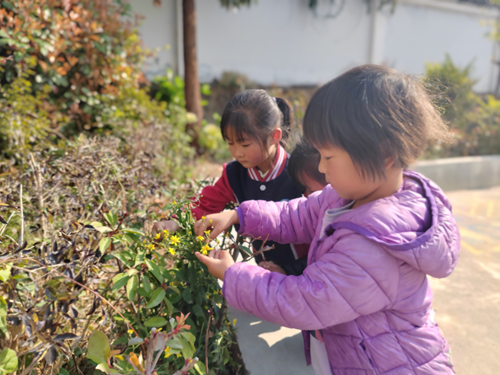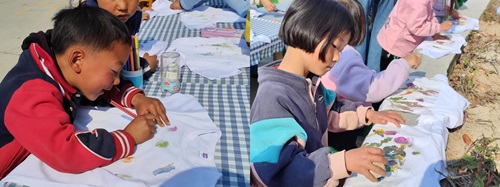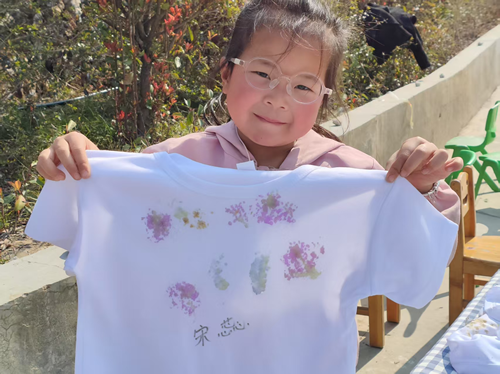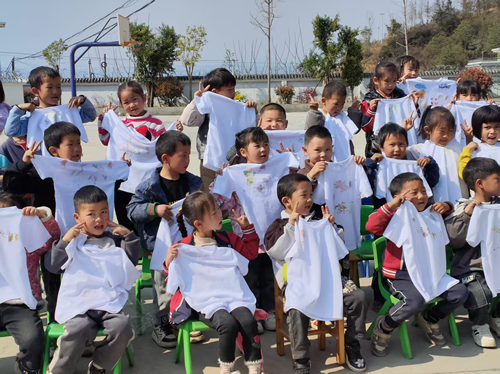Home \ Project News \ Intangible Cultural Heritage Spring Time imprints
Writer: Wang Xingju, Kindergarten leader of Qiaojia County
Spring opens the earth's door, and flowers unfold gradually across the mountains. The Qiaojia County children, holding small scissors, gaze between flowers, dipping wildflowers in morning dew, and stretching new leaves into bamboo baskets. They borrow ancient wisdom, eternally engraving the fleeting spring through their craft.

As an intangible cultural heritage, plant impression and dyeing technology carries the East's unique aesthetic philosophy. When simple tools meet cotton cloth, green leaves exude jade-like juice, camellia petals blush like rouge, and natural creatures leap in vibrant spontaneity. This skill, originating in the Qin and Han Dynasties, weaves the rhythm of the 24 solar terms into warp and weft to rhythmic tapping sounds.
Under their teacher's guidance, the children press cotton cloth with the most primitive tool—a stone—adjusting their pounding intensity by desired color depth. The fresh scent of grass and flowers lingers as each child crafts their vision. This is both an aesthetic education initiation and a millennia-spanning cultural dialogue.


"My clothes have the most flowers!" "Mine is prettier, with all colors!" Banter erupts among children as they present their favorite works for evaluation. The kindergarten vibrates with spring's joyous echoes.

These children cut spring into specimens, letting mountain gifts bloom anew on fabric. They preserve more than spring—in the interplay of plants and cloth, intangible heritage passes down generations through profound simplicity.
